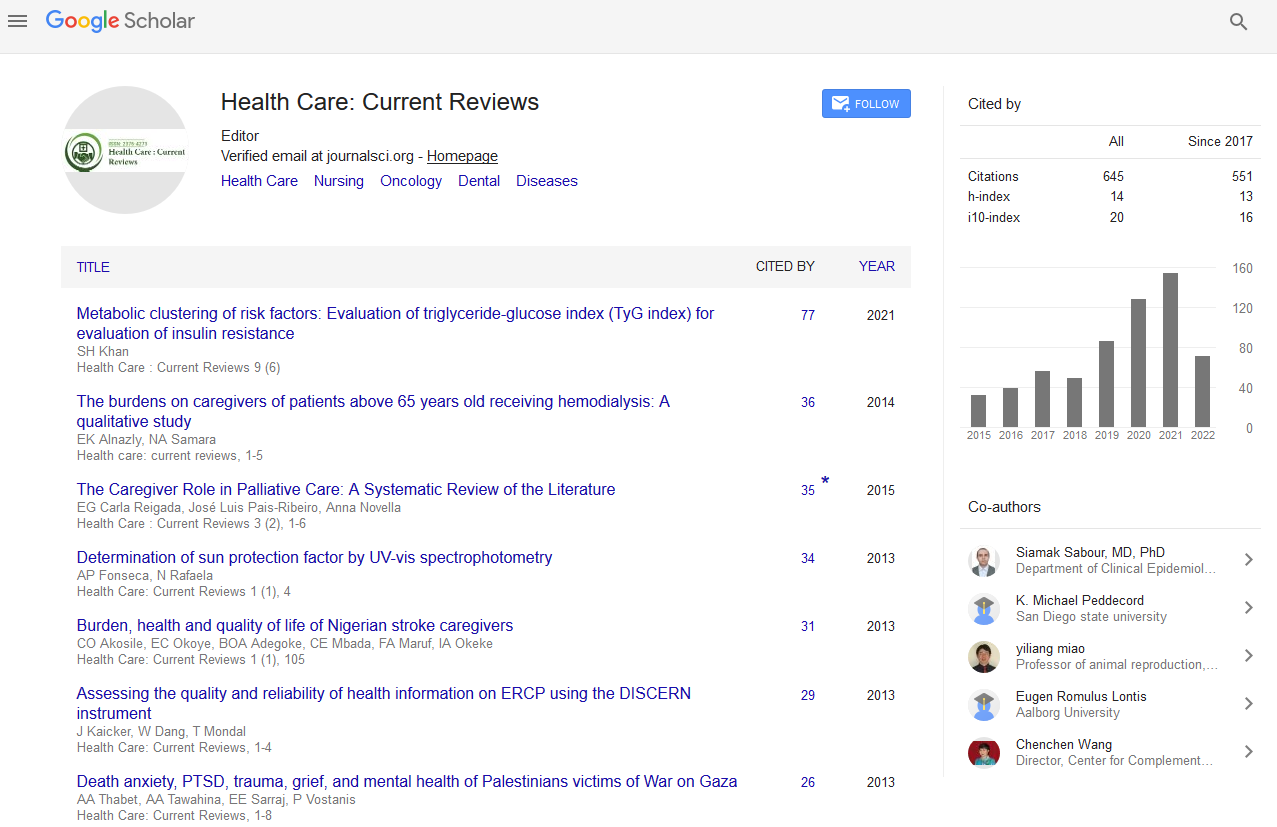PMC/PubMed Indexed Articles
Indexed In
- Open J Gate
- Academic Keys
- RefSeek
- Hamdard University
- EBSCO A-Z
- Publons
- Geneva Foundation for Medical Education and Research
- Google Scholar
Useful Links
Share This Page
Journal Flyer

Open Access Journals
- Agri and Aquaculture
- Biochemistry
- Bioinformatics & Systems Biology
- Business & Management
- Chemistry
- Clinical Sciences
- Engineering
- Food & Nutrition
- General Science
- Genetics & Molecular Biology
- Immunology & Microbiology
- Medical Sciences
- Neuroscience & Psychology
- Nursing & Health Care
- Pharmaceutical Sciences
Analysis of the level of biophysical knowledge of urgent health care students
Joint Event on 3rd International Conference on Medical Sciences, Hypertension and Healthcare and World Congress on Organ Transplantation and Artificial Organs
August 24-25, 2018 Tokyo, Japan
Zuzana Balazsiova
Comenius University in Bratislava, Slovakia
Scientific Tracks Abstracts: Health Care Current Reviews
Abstract:
Statement of the Problem: Medical rescuers practices include initial assessment of patient condition, diagnosis and treatment. For optimal realization of these activities, it is necessary to know apply basic physical knowledge. The aim of our study was to determine level of physical and technological literacy of 190 students of Bachelor???s study program of Urgent Health Care from four Slovak universities. Methodology & Theoretical Orientation: Original written test was used. Questions were based on health care practice. They could be solved using knowledge from nursing, urgent health care or physics. Test has been validated by High school curriculum and curricula of Slovak universities. Findings: 71% of all respondents did not know correctly to determine the required information from patient???s body temperature chart. If students cannot read correct values from the graphical representation of vital functions, they may endanger life of the patient in the future. More than a third of all respondents (34%) have no knowledge that the width of sphygmomanometer cuff affects the result of measurement of blood pressure patient. Blood pressure measurement is included among basic skills of rescue professionals. Therefore, they should perfectly control this activity. 47% of respondents did not know that drugs with identical active principle in different solvents can be dosed differently. It is likely, that teaching of subjects nursing and nursing procedure are more focused on technical implementation of drug administration, not on physical properties of liquids and their possible changes. Conclusion & Significance: Our results show that students of Bachelor???s study program Urgent Health Care have poor knowledge of physics and devices used in healthcare practice or they do not know how to use their knowledge for solving model problem tasks. Year and form of study did not have statistically significant effect on student results.
Biography :
Zuzana Balazsiova is a Senior Lecturer, Medical Faculty of Comenius University in Bratislava, Slovak Republic. She has her expertise in students’ education of medical and paramedical study programs on biophysics, physical applications in medicine and nursing. Currently, she is the Principal Investigator of Grant Project focused on optimizing of the physical curricula for medical and non-medical study programs.
E-mail: zuzana.balazsiova@fmed.uniba.sk


